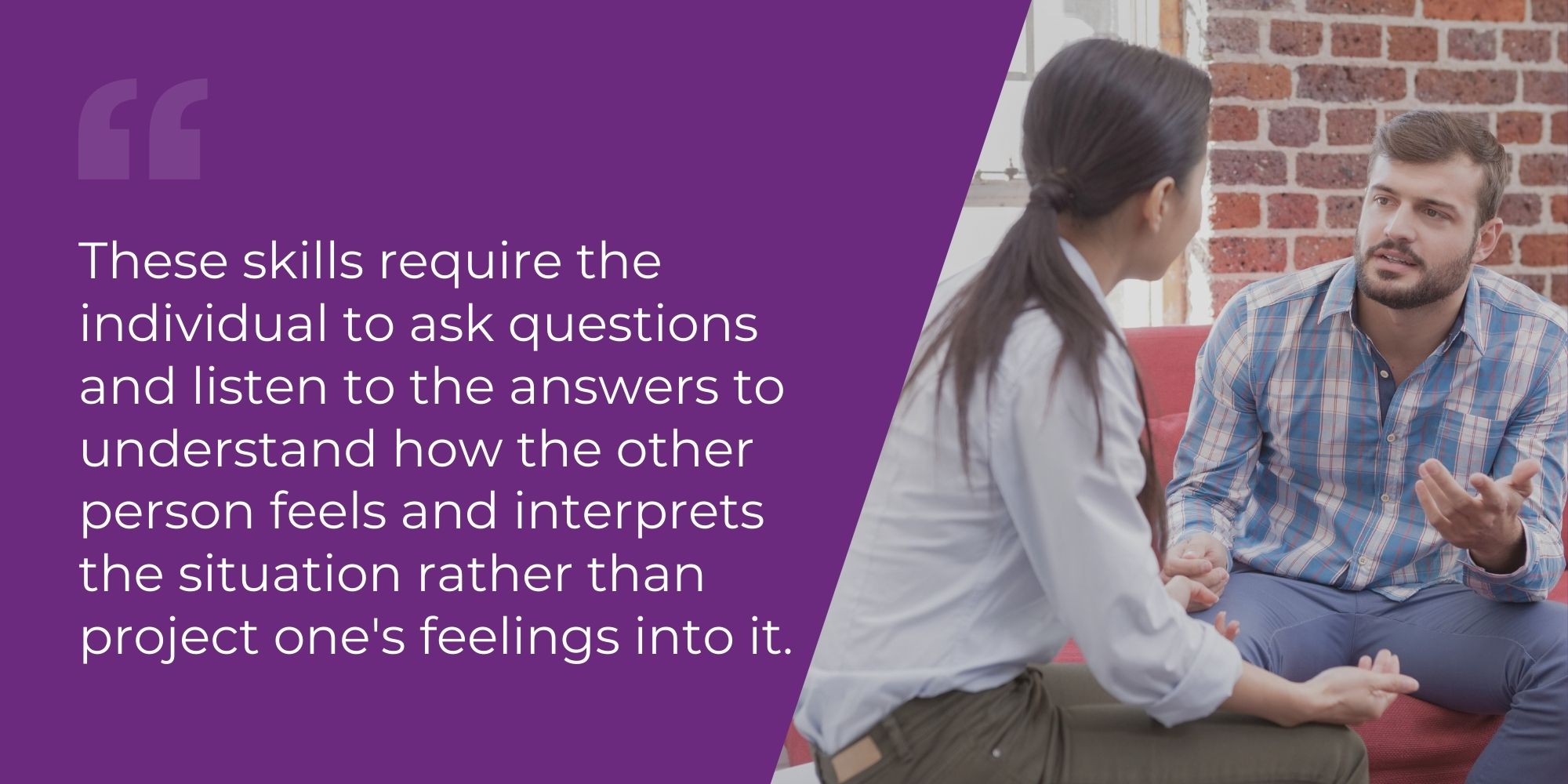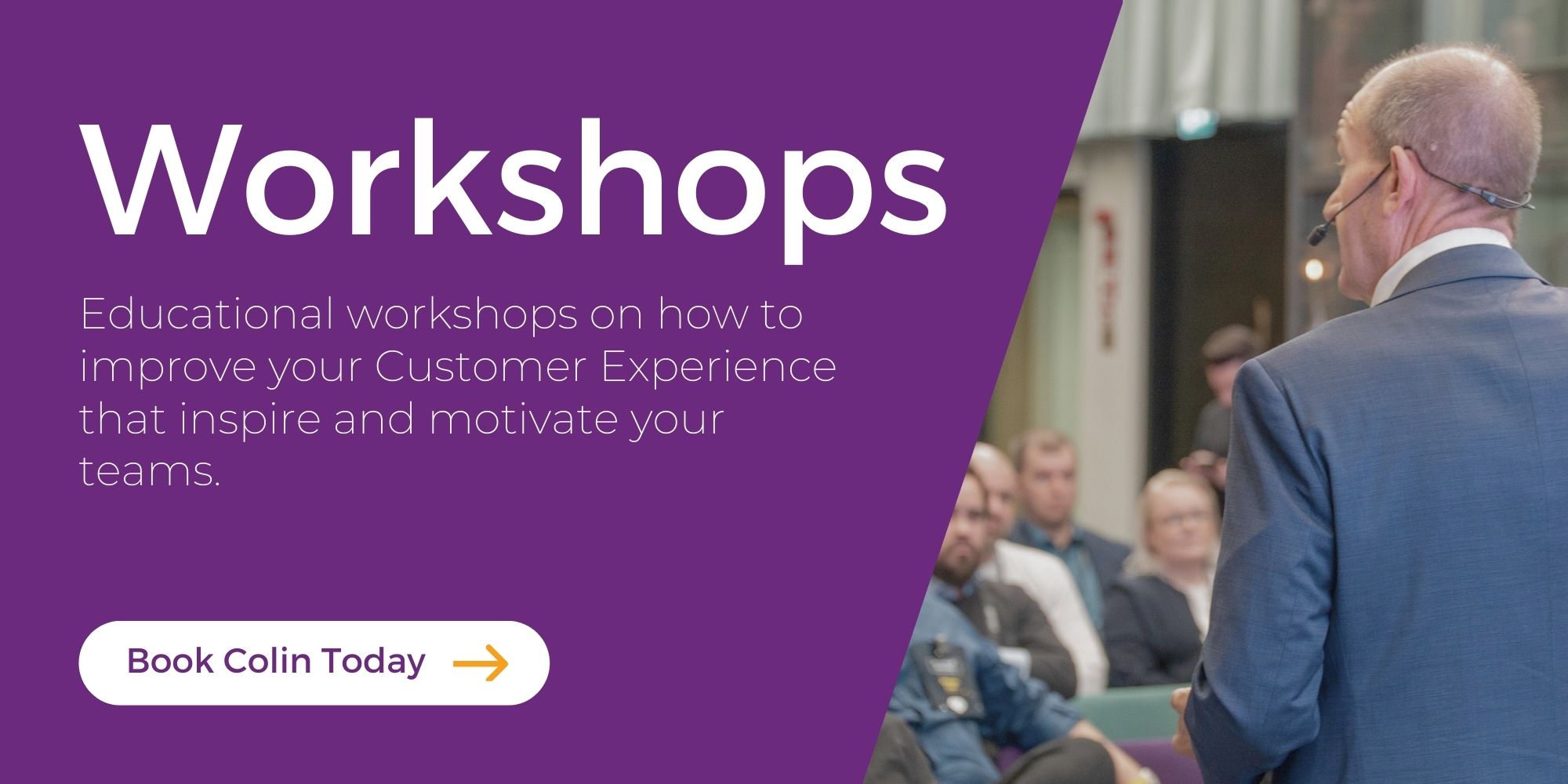Learn more about Colin Shaw: Join over 85,000 people on our LinkedIn Newsletter list or visit our website for more great podcast episodes.
Listen to the podcast:
We often talk about empathy regarding Customer Experience Management. But have we challenged what empathy is, how it relates to emotional intelligence, and how we can make both concepts work even better for us? Today, we examine whether empathy is over-hyped and what it could do for your experience management efforts.
I have been a fan of emotional intelligence since I read Daniel Goleman’s book nearly twenty years ago. I have some interesting statistics on emotional intelligence:

- Emotional intelligence has a 58% influence on job performance.
- 90% of top performers at work have a high emotional intelligence (EQ) score.
- The demand for EQ skills will likely grow six times over the next three to five years.
- Employees with empathetic leaders report an increase in engagement of 76% and creativity by 61%.
- Restaurants managed by people with emotional intelligence have grown their profitability by 22% annually.
- Emotional intelligence interventions in the workplace can reduce employee turnover by 63%
- 75% of Fortune 500 companies have used emotional intelligence training tools
So, why is there a focus on this today? Sandra Thompson, an emotional intelligence coach for Evolution, shared a video as part of our None of Us Are as Clever as All of Us feature for our podcast. Thompson had an interesting point about the role of empathy in emotional intelligence, so I am sharing it here, too:
As you heard, Thompson is a fan of emotional intelligence, which has a place for empathy. However, she says that it is essential to use empathy skills within the context of emotional intelligence. These skills require the individual to ask questions and listen to the answers to understand how the other person feels and interprets the situation rather than project one’s feelings into it.

I like the idea of diving deeper into what it means to be empathetic from an emotional intelligence perspective. Empathy, by the traditional definition, means we try to understand others by filtering their emotions through how we feel about the situation. In the conventional sense, empathy can be too contextual because emotions are personal. Suppose the other person’s emotional context is different; that can lead to misunderstandings.
Another interesting bit was what Thompson said about walking in the customers’ shoes. Thompson said you can’t do that because experiences are individual. However, I disagree to a degree. My position is that you can in some areas but not in others.
For example, one of my grandchildren has special needs. She recently had a tantrum at a restaurant, and the people around me, even those with children, were looking at me to control the situation. In this case, those restaurant patrons who had empathy understood that kids have tantrums, which can be difficult for parents to weather.
However, they didn’t have the context of the special needs factor and my inability to do much about it. They only saw a grandpa who was not controlling the situation. From that perspective, they didn’t have empathy for the situation they thought they did, which led to a misunderstanding.

The Bad, Good, and Better of Empathy in Emotional Intelligence
If we break down Thompson’s point, one could argue there are three ways to handle empathy in experiences: bad, good, and even better.
- Bad= Not caring about it one way or the other
- Good=Caring about it and walking the experience as if you were a customer, also called customer mirroring, and using empathy to interpret how customers feel
- Better=Walking the experience as if one were a customer and using that experience to ask questions to understand better how customers felt in those moments
I endorse this idea of the importance of having an experience that produces an emotion and then using an extra level of inquiry to understand how it makes others feel. Having the customer articulate their thoughts seems like an improvement on the traditional definition of empathy, where one supposes that others feel the same way.
I used to run call centers. We needed to reduce headcount, so we decided to specialize the team into customer-facing and non-customer-facing jobs. We called the customer-facing front office and non-customer-facing back office. In our new scenario, the front office would find out the situation and pass it on to the back office for management.
We took this plan to the team, which numbered in the hundreds. We explained how it would work and asked them which team they preferred. More than half wanted to move into the back office or failed the test to stay in the front office.
I was surprised that these employees—all of which talked to customers at the time—either wanted not to talk to them or didn’t have the skills to speak to them. Thompson would probably not feel as surprised as I was because of her experience as an emotional intelligence coach.
Moreover, what she is talking about is much more advanced than this basic level of sorting I was crafting all those years ago. Many organizations today still aren’t at the basic level regarding emotional intelligence, so I fear this higher-level approach might be lost on them.
When one considers that AI will streamline the headcount even more in call centers by handling the basic interactions a company can automate, it is obvious that finding people with this advanced emotional intelligence and enhanced empathy skills is essential. Not everyone needs to talk to a live person, but some do. The people they talk to are going to need these critical EQ skills.

So, What Does This Mean to You?
True empathy involves listening to and understanding another person’s emotional state rather than projecting what one thinks that emotion is. However, some experiences still exist where one can guess.
For example, if someone complains that they have called numerous times and still don’t have a resolution to the problem, we can guess they feel frustrated. It doesn’t require an emotional genius to determine that.
Nuance exists here, of course. Some people will rage about this situation, while others remain relatively calm. Either way—and any degree between these two points—that people react to it, they all will feel frustrated.
That’s why walking the experience as if one is a customer is a great improvement for applying emotional intelligence to experience management. When you try to experience it as customers do, there is a chance that your version of emotional reaction will match some part of the customer population. That overlap is progress.
However, as Thompson suggests, adding in that next tier of advanced emotional intelligence that recognizes not everyone feels the same emotion in the same situation will take it even further. Asking customers how they felt during the different parts of the experience can augment the customer mirroring exercise exponentially.
Talking about emotional intelligence, especially professionally, so much is about other people. However, it is essential to remember that one cannot have emotional intelligence unless there is awareness of one’s emotions and how to manage them. Therefore, it is critical to ask oneself whether one can empathize with others and manage those relationships.
I would like to see more emphasis on the self-awareness aspect of emotional intelligence applied professionally, too. People need to understand their emotional triggers and how to manage those emotional states healthily. So, don’t neglect that side of it. Understanding one’s emotions improves one’s understanding of other people’s feelings.
Emotional intelligence is interesting, and I am glad we had an opportunity to discuss it again. What would you like us to discuss? Why not share it in a video? We’d love to hear about it. Click here.

Colin has conducted numerous educational workshops, on how to improve your Customer Experience, to inspire and motivate your team. He prides himself on making this fun, humorous, and practical. Speak to Colin and find out more. Click here!


